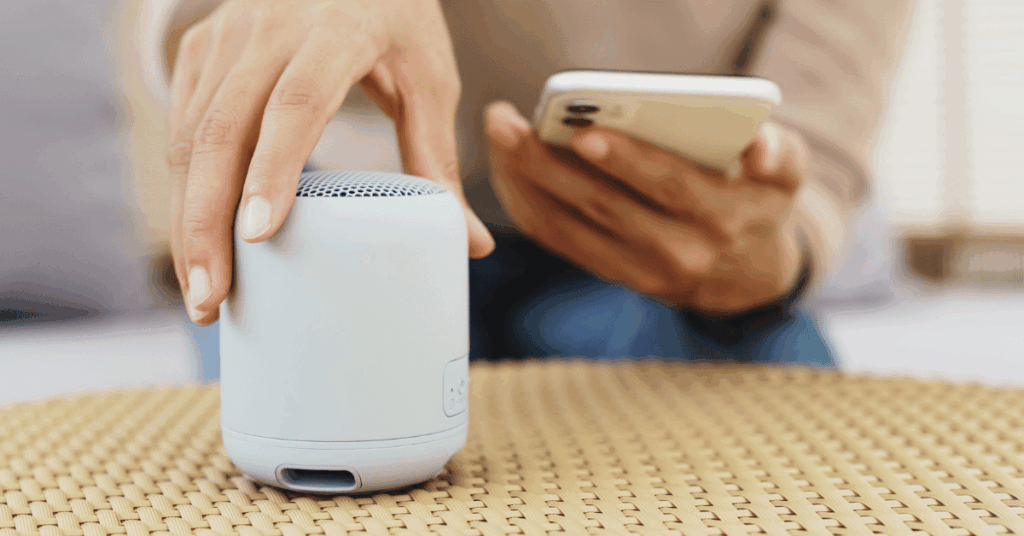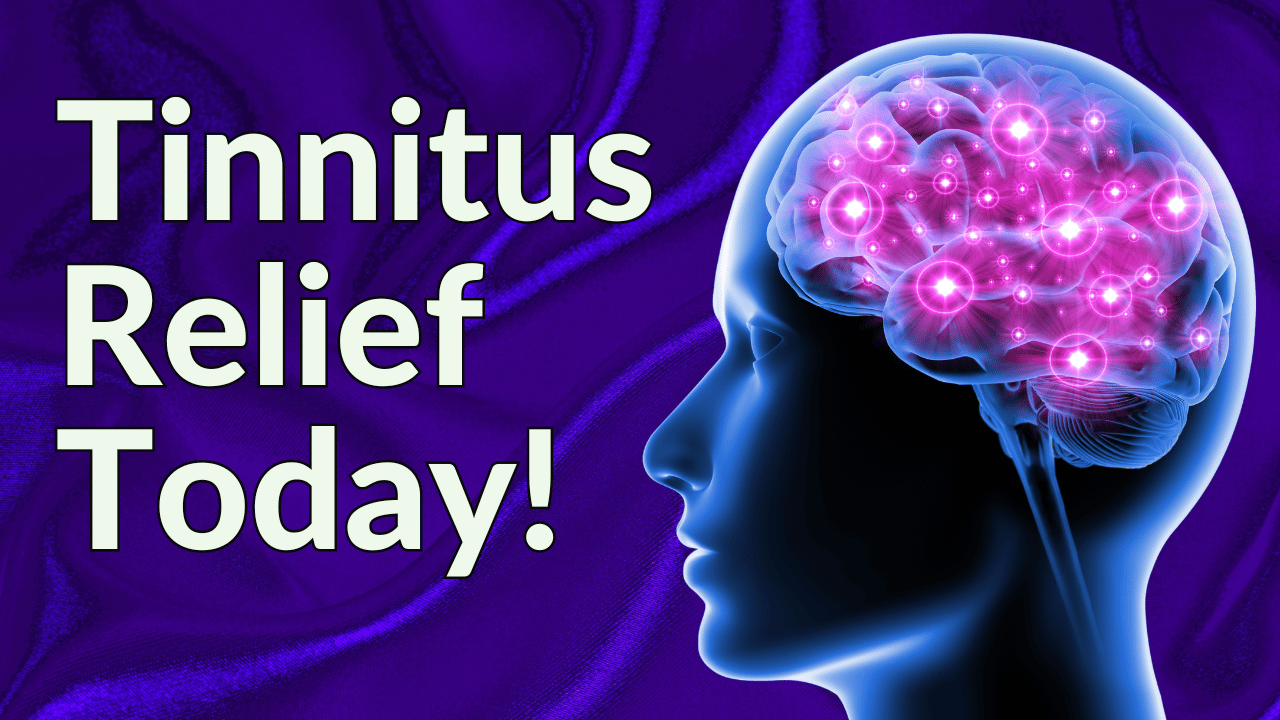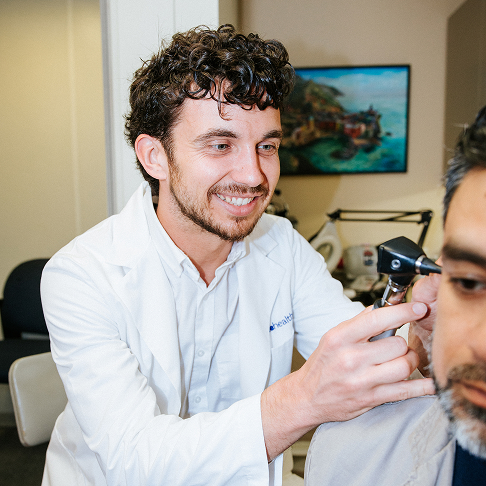Constant ear ringing is more than just an annoyance. It can increase stress and affect daily life! This blog looks at whether tinnitus sound therapy can ease that stress and bring meaningful relief. By exploring how stress and tinnitus are connected, what the brain’s role in how we perceive ear ringing is, and looking at the latest research on sound-based treatments, you’ll see how this approach may help create a calmer and more balanced life.
How Is Tinnitus Linked to Stress?
The connection between stress and tinnitus is undeniable and often forms a vicious cycle. While extensive research shows tinnitus can induce stress, there is growing evidence that stress can also cause or worsen tinnitus. Your body’s stress response system, particularly the hypothalamus pituitary adrenal axis, is commonly disturbed in those with tinnitus.
"Treble Health helped me turn down the sound of my tinnitus. Now I can breathe, and get on with my life!"

"Treble Health helped me turn down the sound of my tinnitus. Now I can breathe, and get on with my life!"
– Elisa
Book a free consultation to learn which Treble Health solution is right for you. Join Elisa and thousands more who have found lasting tinnitus relief.
Patients with chronic tinnitus have shown abnormal responses to psychosocial stress. A study evaluating the presence of stress symptoms in 180 patients with chronic, subjective tinnitus found that 65% had stress symptoms, and this was directly associated with tinnitus annoyance.
A mini-review on the association between stress and emotional states highlighted that psychosocial stress has the same probability of developing tinnitus as occupational noise. Furthermore, exposure to high stress levels and occupational noise doubles the likelihood of developing tinnitus. Another study found that chronic stress alone can be a causal factor for the generation of tinnitus.
Emotional Stress and Tinnitus
Emotional stress is frequently linked to ear-related symptoms like tinnitus and dizziness. Stress can contribute to both the beginning and the worsening of tinnitus, creating a difficult cycle for many people. To better understand this connection, one study evaluated the presence of stress symptoms in 180 patients with chronic tinnitus and looked at how stress correlated with the annoyance caused by their tinnitus.
The Neurological Connection
Tinnitus is not just an auditory phenomenon. It involves complex brain activity. While the sound itself might originate in the ear, its perception and evaluation happen in the auditory cortex, with significant involvement from the limbic system which processes emotions.
When tinnitus is connected with fear or the threat that it is a sign of a serious illness, it leads to automatic negative thoughts. This can develop a stress reaction that may potentiate sleep problems, anxiety, and depression.
The end result is a vicious cycle, where a stress reaction worsens tinnitus, and increased tinnitus worsens stress! This was taken into consideration in the neurophysiological tinnitus model by Jastreboff (1990) and it formed the basis for the development of the TRT program.
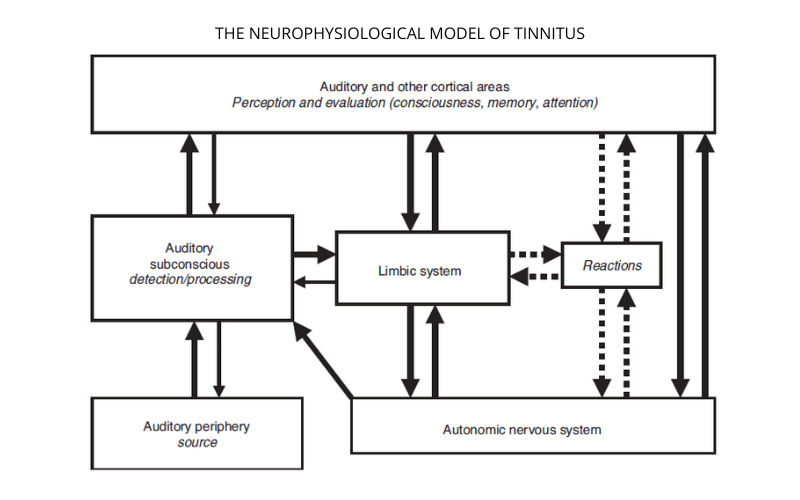
Does Sound Therapy Work for Tinnitus?
The impact of a combination sound therapy on tinnitus distress was further highlighted in an exploratory one-year study. Results showed that measures like the Tinnitus Handicap Inventory (THI) and the Tinnitus Functional Index (TFI), along with tinnitus awareness and annoyance, decreased after the device fitting. This improvement reached a stable point at about four months. The extent of improvement in THI, TFI, and tinnitus annoyance was directly related to the daily hours of sound therapy used.
Sound therapy is the use of sounds, music, and other auditory stimuli to normalize noise and ease the psychosomatic impact of regular ringing in the ears. Like other forms of sensory therapy, sound therapy can have many benefits beyond tinnitus care alone.
What Sound Makes Tinnitus Go Away?
While no sound can make tinnitus “go away” permanently, certain sounds can help you find relief by distracting your brain from the ringing. Listening to calming sounds or music at a low volume can be very helpful. Some hearing aids can provide soothing sound stimulation through your hearing aids or an app, which helps to mask the tinnitus and promote relaxation. The team at Treble Health recommends various sounds that have been shown to help alleviate the ringing in your ears, as detailed in this video playlist.
How Effective Is Sound Therapy for Tinnitus Relief?
Clinical studies show that sound therapy effectively reduces the severity and distress of tinnitus for many people. It’s considered more effective than medication or education on their own, according to a 2021 literature review. established that sound therapy is more effective than medication or education on its own.
A study on 58 patients found that with extended use, the chances for symptom relief increased dramatically. This was supported by two experiments from the University of California-Irvine, which found that more than half of the participants experienced both short and long-term benefits from sound therapy.
Even for people who haven’t found relief with other treatments, sound therapy can be effective. One study on nine patients showed a significant reduction in their Tinnitus Handicap Inventory scores when using a customized approach, with those who had “whistle-type” tinnitus seeing the best results. These findings highlight the importance of a personalized approach to tinnitus sound therapy.
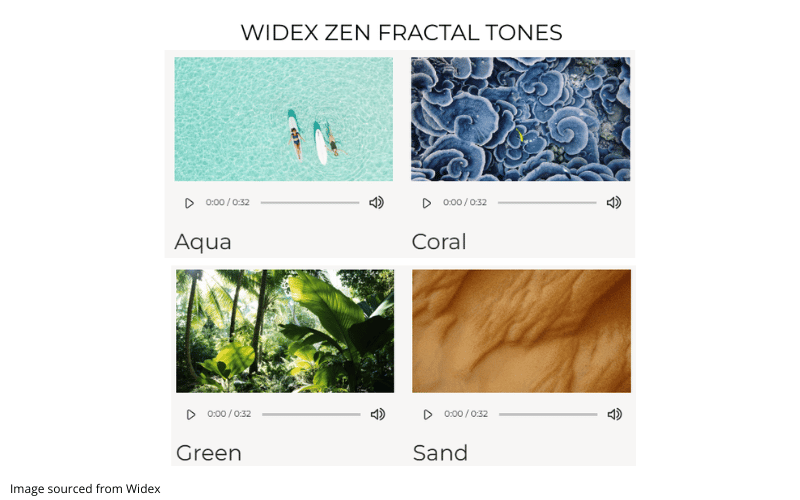
Inspired by the calming effects of certain types of music, Widex created Zen fractal tones. These sounds are based on fractal technology and consist of random, chime-like tones. They are designed to help with relaxation and make tinnitus less noticeable.
How Do I Train My Brain to Block Out Tinnitus?
Training your brain to handle tinnitus is a lot like physical therapy. It takes patience and consistent effort! Approaches like Cognitive Behavioral Therapy (CBT) and mindfulness can teach you concepts and exercises that, when practiced daily, help your brain manage the ear ringing. These methods require regular application over months and years to achieve their full benefits. With practice, the skills you learn will become more automatic, and it will be easier to manage your tinnitus. It’s about changing your brain’s reaction to the sound.
What Sound Makes Tinnitus Go Away?
Introducing external sounds can be an effective way to manage tinnitus. Using sound from sources such as hearing aids, environmental sound generators, or music helps to minimize the contrast between the tinnitus and the surrounding auditory environment.
This can reduce the perceived annoyance of the tinnitus and aid in relaxation, which is crucial for managing stress (a known exacerbating factor for tinnitus). For example, the Widex Zen fractal tones, inspired by certain types of music, use fractal technology to produce relaxing, chime-like tones that can make tinnitus less noticeable.
Is Silence Good for Tinnitus?
It might seem like a good idea to seek out complete silence when you’re experiencing ringing in your ears, but it can actually make your tinnitus seem worse. When there’s no background noise, your brain has nothing to focus on except the internal sound of your tinnitus.
Research supports this idea. A study on 120 people with normal hearing found that when they sat in a silent room, most of them started to perceive tinnitus-like sounds very quickly. The most common sound they heard was a ring, followed by a buzz. This shows that having some background noise is important for distracting your brain.
That’s why using something like a white noise machine or playing soft music can be so helpful. It provides your brain with an external sound to focus on, which can help to reduce the perceived volume and annoyance of your tinnitus, especially when you’re trying to sleep!
Tinnitus Sound Therapy Devices
A variety of devices are available to provide effective tinnitus sound therapy. For those with hearing loss and tinnitus, hearing aids are often a first step. A 2007 survey of hearing health professionals indicated that roughly 60% of their tinnitus patients experienced at least some relief from wearing hearing aids, while 22% reported significant relief.
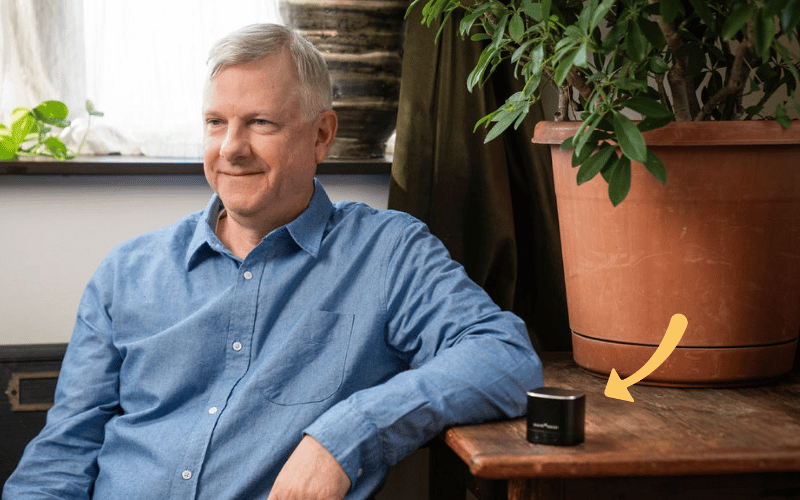
Other devices leverage advanced technology to provide relief:
- Bimodal Stimulation Devices: Devices like Lenire combine sound with subtle tongue or skin stimulation. This dual-mode approach is designed to promote neuroplasticity, helping the brain to stop focusing on the tinnitus sound.
- Sound Therapy Machines: These devices are designed for sound enrichment, providing a consistent source of background sound to help mask tinnitus.
- Bone Conduction Headphones: By playing sound through the mastoid bone, these headphones keep the ear canal open, which can be a more comfortable alternative for some individuals.
- Sleep Headbands: For evening use, these headbands feature integrated speakers that provide sound therapy to aid in relaxation and sleep.
Breaking the Stress–Tinnitus Cycle
Living with constant ear ringing can feel like a never-ending cycle of noise and stress, but research shows there are effective ways to manage it. From understanding how stress and tinnitus influence each other, to exploring how the brain processes sound, it’s clear that relief is possible. Approaches like sound therapy, mindfulness, and specialized devices all play a role in easing both the ringing and its emotional impact. While tinnitus may not disappear completely, treatment such as tinnitus sound therapy can help reduce its hold on your daily life, giving you more space for calm and focus.
Ready to Turn Down the Volume on Tinnitus?
Living with tinnitus can be incredibly challenging, but you do not have to face it alone. We believe in the power of personalized care and the proven benefits of tinnitus sound therapy to help you find significant relief. Imagine a life where the ringing in your ears no longer dictates your mood or limits your activities.
This is not just a dream but it is an achievable reality with the right support and a tailored plan. Our audiologists are passionate about helping people like you navigate their tinnitus journey with genuine care and expertise.
Book a free 20-minute consultation today to get expert guidance, explore treatment options, and take real steps toward better hearing and a better quality of life.
Next Step: Book Free Consultation
- 75% of patients reduced their tinnitus within three months after following our recommendations.
- "I feel like Treble Health literally gave me my life back." - Randy S. (verified customer)
- Join thousands of people who have reduced their tinnitus after scheduling a free consultation.





